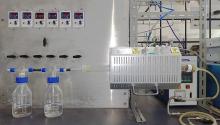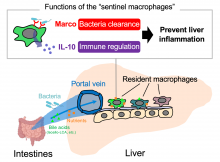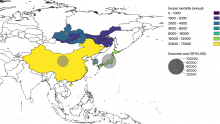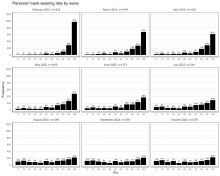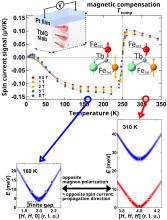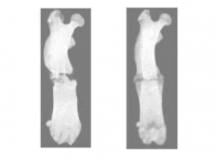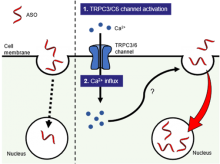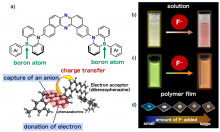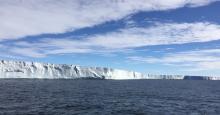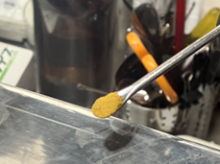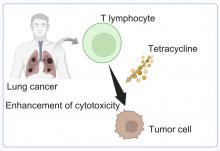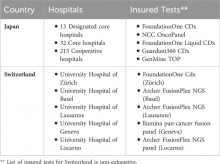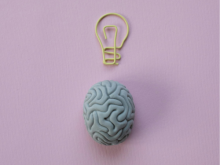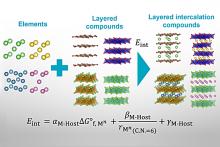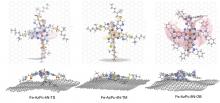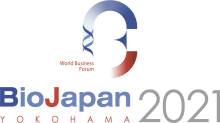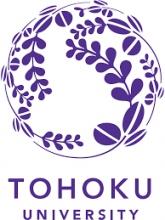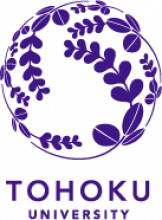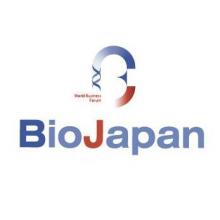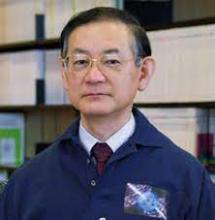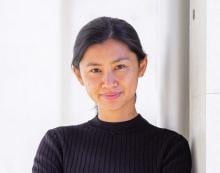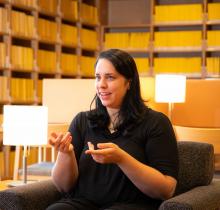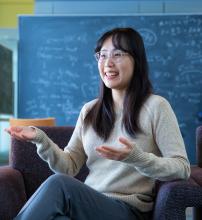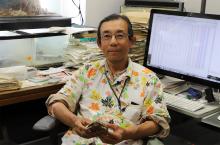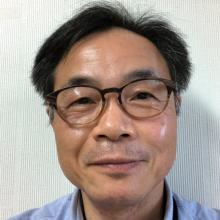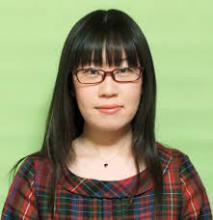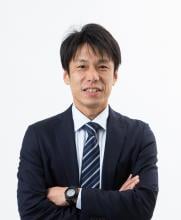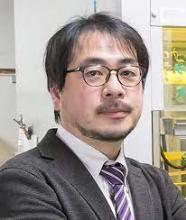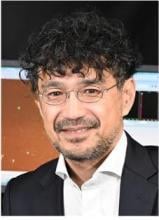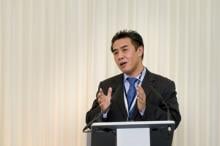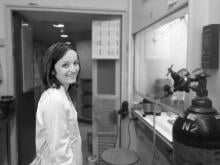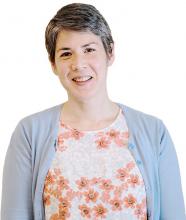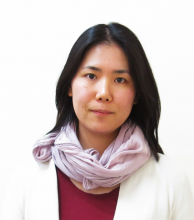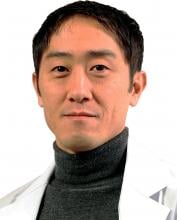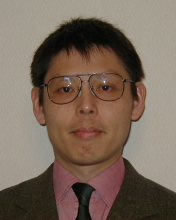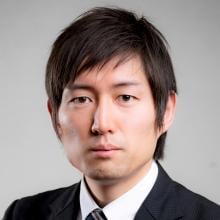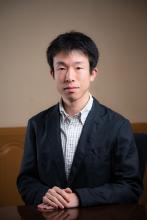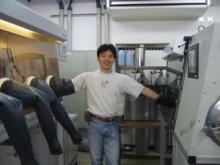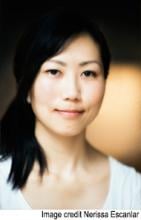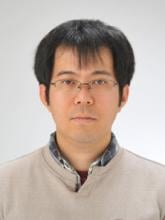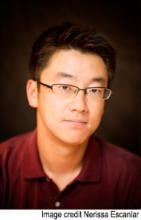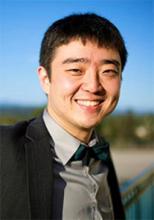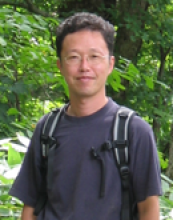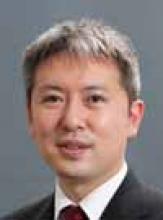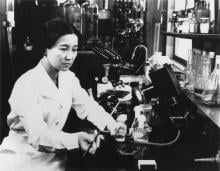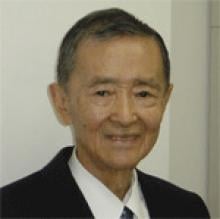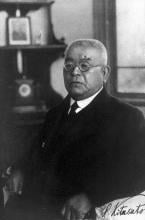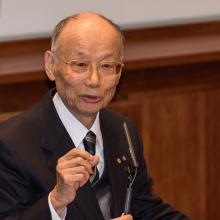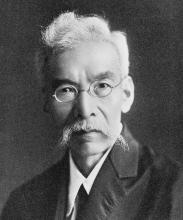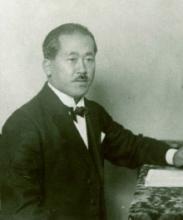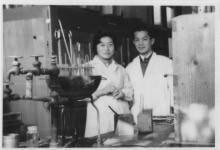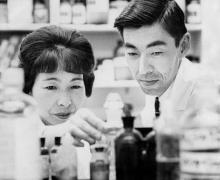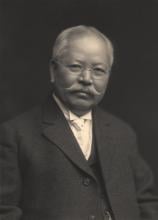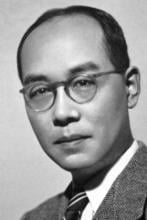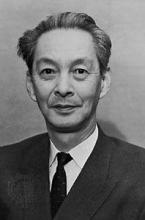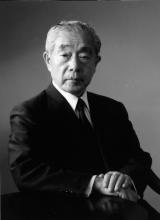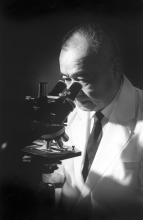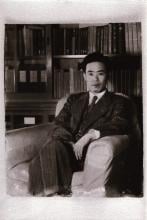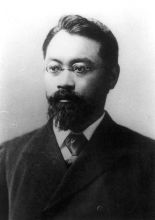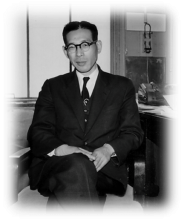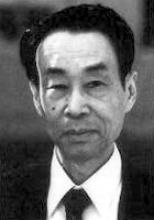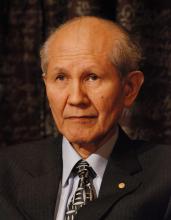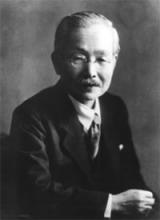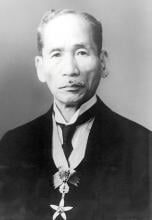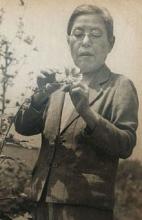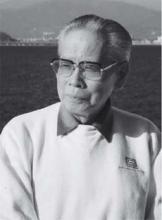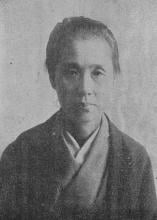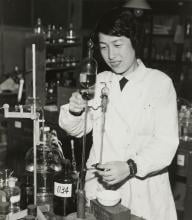Japan
News
25 Apr 2024
Osaka University researchers discovered liver resident macrophages' pivotal role in defending against gut bacteria and related substances entering via the portal vein, particularly under compromised intestinal barrier conditions. Identified as "sentinel macrophages," they are activated by isoallo-lithocholic acid. This finding holds promise for developing preventive and therapeutic strategies for liver chronic inflammatory diseases, such as metabolic dysfunction-associated steatohepatitis (MASH), by enhancing the function of these macrophages to mitigate inflammation and improve treatment efficacy.
24 Apr 2024
As wildfires in Siberia become more common, global climate modeling estimates significant impacts on climate, air quality, health, and economies in East Asia and across the northern hemisphere.
24 Apr 2024
Researchers from Osaka University examined how specific types of contextual changes, such as government recommendations and perceived behavior of others, influenced mask-wearing behavior during the COVID-19 pandemic. They found a complex relationship between societal norms and individual behavior during the pandemic, indicating that future strategies for public health crises interventions should consider various factors and contexts, including cultural predispositions.
23 Apr 2024
Using neutron scattering and voltage measurements, a group of researchers have discovered that a material's magnetic properties can predict spin current changes with temperature. The finding is a major breakthrough in the field of spintronics.
22 Apr 2024
Bacteriophage therapy could be developed based on study’s results
19 Apr 2024
Watching and waiting with minimal intervention forms educational philosophy guided by balance
17 Apr 2024
Electron spin states can now be probed at much higher resolution and more efficiently, opening new opportunities in materials analysis and data processing technologies.
17 Apr 2024
Researchers from Osaka University used structured light and switchable fluorescent molecules to reduce the background light from the out-of-plane regions of microscope samples. This method allowed for the acquisition of images that surpassed the conventional resolution limit, and it may be useful for further study of cell clusters and other biological systems.
16 Apr 2024
Aiming to reduce fracture recovery times, an Osaka Metropolitan University-led research group is focusing on plasma irradiation as a treatment method
16 Apr 2024
Skilled players show stronger inhibition processes when electing not to pass the ball
15 Apr 2024
Researchers from Osaka University found that a new activator called L687 induces cancer cells to accept delivery of antisense oligonucleotide (ASO) drugs. These drugs can treat cancer by blocking the transfer of messages from genes that encourage cancer growth. Previous methods to deliver ASOs into cells had only limited success. This research will help accelerate the development and delivery of novel ASO cancer therapies.
12 Apr 2024
Researchers from Osaka University and collaborating partners have synthesized triarylborane (TAB) compounds that exhibit unusual optical responses upon binding to certain anions. They also synthesized thin polymer films that incorporate the TAB and retain the sensing as well as the light emission properties of the TAB. This work is an important advance in plastic research and has applications in analyte sensing as well as electronic display technologies.
11 Apr 2024
Meandering ocean currents play an important role in the melting of Antarctic ice shelves, threatening a significant rise in sea levels.
11 Apr 2024
Researchers have identified 14 genes that thale cress express more when responding to five specific stressors, as well as eight genes that the plant suppresses.
11 Apr 2024
Researchers from the Institute of Industrial Science, The University of Tokyo, find that providing lab-grown ‘cerebral organoids’ with connections similar to those in real brains enhances their development and activity
10 Apr 2024
Process that can lead to mass synthesis yields solid sulfide electrolyte with world’s highest reported sodium ion conductivity and glass electrolyte
10 Apr 2024
Researchers from Osaka University found that tetracycline antibiotics stimulate T lymphocytes in the body’s immune system to attack and destroy cancer cells. The antibiotics work by blocking the action of galactin-1, a protein made by cancer cells that suppresses the immune system. Identification of this new target may lead to the development of novel cancer immunotherapies.
08 Apr 2024
Genetic analysis finds evidence suggesting that acoustic fat bodies in the heads of toothed whales were once the muscles and bone marrow of the jaw.
08 Apr 2024
Researchers from Japan’s Osaka University and Switzerland’s University of Lausanne explored the ethical considerations and current status of cancer multigene panel testing access in their countries. Despite cultural and healthcare differences, they found common national barriers: limited test availability, insufficient patient information, and variable insurance coverage. The study underscores the need for more equitable genetic medicine, suggesting improvements in test access, patient education, and insurance policies.
04 Apr 2024
Researchers from Osaka University and Imperial College London have used operando optical spectroscopy in conjunction with other spectroscopic techniques to follow the oxygen evolution reaction (OER) for an iridium oxide catalyst. Using complementary techniques to probe the catalytic process at different pH values allowed them to observe the effect of the extended environment around the intermediate species involved. The findings are expected to contribute to optimizing the OER for green hydrogen production.
03 Apr 2024
New survey from Springer Nature shows that amongst researchers in Japan, approximately a third of the respondents are unsure how to share their research beyond academic publications and presentations, indicating the need for further support for their research to reach and have influence on the wider community
03 Apr 2024
Insights into ethical and legal ramifications of growing brain organoids from human fetal brain tissue
03 Apr 2024
Disease-causing E. coli among species labeled electrochemically using organic metallic nanohybrids
03 Apr 2024
Researchers from the Institute of Industrial Science, The University of Tokyo and collaborating partners have created guidelines for the design of intercalated materials, which will accelerate research on energy storage, electronics, and more
01 Apr 2024
Researchers from Osaka University found that exposure to environmental carcinogens and psychological distress significantly decreases happy life expectancy, a measure of the lifespan during which an individual experiences subjective emotional wellbeing. These findings suggest that developing public health policies to reduce exposure to these chemicals could help people live longer, happier lives.
29 Mar 2024
The lipids in some herbal teas have been identified in detail for the first time, preparing the ground for investigating their contribution to the health benefits of the teas.
28 Mar 2024
Tohoku University researchers have created a reliable means of predicting the performance of a new and promising type of catalysts. Their breakthrough will speed up the development of efficient catalysts for both alkaline and acidic environments, thereby saving time and effort in future endeavors to create better fuel cells.
28 Mar 2024
A case study on the effects of open waste burning on air quality in Northwestern Greenland calls attention to the importance of no-one-left-behind sustainable air quality monitoring in the Arctic region.
27 Mar 2024
Researchers from Monash University and Osaka University have unveiled a groundbreaking discovery regarding the pivotal role of sensory neurons in orchestrating tissue repair and regeneration, offering significant promise for patients with poorly healing tissues and diabetes.
Events
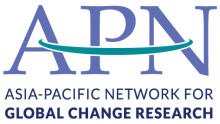
24 Oct 2023
This Forum will take place on 24 October 2023 in Kobe, Japan. It will be held in hybrid format (on-site and virtual).
21 Nov 2023
Japan Scicom Forum brings together communicators, writers, scientists and journalists in Japan. Registration is free and the event will be in English.

11 Oct 2023
Meet your potential business partners in this Partnering Event. Asia's Largest Partnering will be held in both digitally and physically.

23 Dec 2022
This Forum will take place on 23rd December 2022 in Kobe, Japan. It will be held in hybrid format (on-site and on-line).
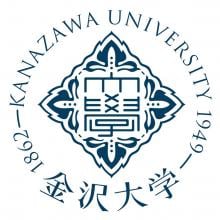
19 Sep 2022
The Nano Life Science Institute (WPI-NanoLSI) at Kanazawa University will hold a ‘Workshop on Computational Biophysics of Atomic Force Microscopy – A Lecture Course Approach’ 19-21 September 2022, online.

01 Mar 2022
The Nano Life Science Institute (WPI-NanoLSI) at Kanazawa University will hold their 5th NanoLSI Symposium 1-2 March 2022, online.
13 Feb 2022
A joint forum by APN, ADRC, JICA Kansai, and Graduate School of Disaster Resilience and Governance, University of Hyogo
26 Jan 2022
Since 2001, the "nano tech" exhibition is one of largest exhibition in the world held in Tokyo, Japan. In 2022, it will be held in On-site and On-line format as a Hybrid event.
09 Sep 2021
Tohoku University will be hosting the 8th German-Japanese (HeKKSaGOn) University Presidents' Conference from Sept 9-10. The online event includes an Academic Conference on the first day that is open to the general public. See article for details.
09 Sep 2021
Earth-Life Science Institute (ELSI) will launch a new Master-PhD course on origin-of-life science and astrobiology at Tokyo Institute of Technology. The five-year ELSI course is open for domestic and international students who wish to tackle fundamental questions in natural science such as the origin and evolution of living planets. ELSI will provide financial support (as salary of a research assistant) for all the students, except for ones who are going to be supported by JSPS DC fellowships (Japan) or equivalent fellowships.
12 Oct 2021
The Asia's Largest Partnering “BioJapan” will be held both digitally and physically. Meet your potential business partners in this Partnering Event!
14 Jul 2021
Intelligent Mobility 2021 will offer a platform for industry experts, thought leaders, policy makers, city planners and researchers to discuss the future of mobility, growth opportunities emerging as a result of disruptive innovation, and the potential impact of new business models.
10 Mar 2021
Upcoming side event at the 7th Asia-Pacific Climate Change Adaptation Forum: Partnerships to harmonize science information and knowledge at regional scales for enabling adaptation

26 Mar 2021
Springer Nature and the University of Tokyo to hold SDGs Symposium 2021, “Interdisciplinary science solutions for food, water, climate and ecosystems Sustainable Development Goals”

09 Mar 2021
The SciREX Open Forum’s 10th session will invite Dr. Yoichiro Matsumoto who assumed the position of the 2nd S&T Advisor to Japan's Minister of Foreign Affairs as a speaker to talk about what we can see from the pandemic, how S&T Diplomacy should be in the ongoing pandemic, and what actually can be done.
24 Feb 2021
INTERPHEX Week Osaka is Asia's leading exhibition for pharmaceutical industry, consists of 2 exhibitions for pharmaceutical technologies - INTERPHEX OSAKA (Manufacturing & Packaging) and PharmaLab Expo OSAKA (Pharma R&D and Drug Discovery).
09 Dec 2020
The 20th International Nanotechnology Exhibition & Conference will be held in onsite-online hybrid format.
25 Nov 2020
Asia's Leading Pharma & Bio Tech Show will be held as scheduled from November 25-27, 2020 at Makuhari Messe, Japan. It will be held both on-site and online.
10 Jul 2020
Tohoku University is hosting an online lecture on COVID-19 on July 10. Led by top virologist Hitoshi Oshitani, the panel will share the latest on the pandemic, and discuss how history, culture and religion can help us understand the challenges ahead.
04 Jul 2020
Tohoku University's Graduate School of Education is hosting a three-part webinar series on how the COVID-19 pandemic is transforming education in the Asia-Pacific region. The event is in English and open to everyone. But spots are limited and registration is required.
Details: https://bit.ly/2MT2UFA
14 Oct 2020
Asia's Premier Partnering Event for the Global Biotechnology Industry. This year’s exhibition will be held as originally planned at Pacifico Yokohama. BioJapan partnering is available both physically and virtually. Plus some seminars will be available online.

17 Aug 2020
The Nano Life Science Institute (WPI-NanoLSI), Kanazawa University, is calling for participants for 9th Bio-SPM Summer School (previously known as Bio-AFM Summer School)).
19 Mar 2020
Institute for the Advanced Study of Human Biology(ASHBi) holds the annual symposium with twenty-one speakers who are leading human biology including human development, genetics, and evolution.
26 Feb 2020
Japan's Leading Exhibition for Pharmaceutical R&D and Manufacturing Technologies!

22 Apr 2019
Tohoku University will host a closed door stakeholder’s meeting on April 21, followed by the inaugural International forum on next-generation synchrotron radiation on April 22.

24 Mar 2019
The Tohoku University Center for Innovative Integrated Electronic Systems (CIES) will host its fifth technology forum in Tokyo from March 24~26.
14 Nov 2019
The goal of this conference is to address the emerging technologies and themes in Microfluidics, Lab-on-a-Chip and Organ-on-a-Chip fields as these areas are expanding and evolving.
11 Nov 2019
The conference addresses the whole ecosystem of Cell & Gene Therapy and 3D-Bioprinting with a focus on 3D-Culture, Organoids, Bioprinting and Technology Platforms being developed to bring cell therapy, gene therapy and regenerative medicine to the clinic.
Researchers
I am a japanese physician-scientist in gastroenterology, especially in neurogastroenterology.
Kavli Institute for the Physics and Mathematics of the Universe (Kavli IPMU)
Ken’ichi Nomoto is a visiting senior scientist at Kavli IPMU and Professor Emeritus at The University of Tokyo. He is one of the best experts in the world in astronomy and astrophysics, particularly on stellar evolution and supernovae. He was awarded the Order of the Sacred Treasure by the Japanese government in 2020.
Kavli Institute for the Physics and Mathematics of the Universe (Kavli IPMU)
Jia Liu is the Director of the Center for Data-Driven Discovery and associate professor at CMB Group at Kavli IPMU. Her research integrates data science techniques in the study of large-scale structures of the universe (dark matter, halos, filaments, voids).
Kavli Institute for the Physics and Mathematics of the Universe (Kavli IPMU)
Elisa Ferreira is Assistant Professor at the Kavli IPMU and at the Institute of Physics of the University of São Paulo. Her research deals with the interface between cosmology, astrophysics, and high energy physics, focusing mostly on dark energy and dark matter.
Kavli Institute for the Physics and Mathematics of the Universe (Kavli IPMU)
Man Wai Cheung is a Project Researcher and the first Chien-Shiung Wu Prize Postdoctoral Fellow at KAVLI Institute for the Physics and Mathematics of the Universe (Kavli IPMU). Her research lies in the interplay between algebraic geometry, combinatorics and representation theory.
Hokkaido University
Dr. Eisuke Hasegawa is an Associate Professor at the Graduate School of Agriculture, Hokkaido University, where he heads the Animal Ecology Laboratory. His research interests include animal ecology; evolutionary biology; natural selection; sociality; and ethology.
Dr. Yukio Yasui is an Associate Professor at Kagawa University. He has dedicated his research work to ecology, ethology and evolutionary biology studies, with his more recent work on the evolution of sex.
National Institute for Materials Science (NIMS)
Dr Naoka Nagamura is senior researcher at the National Institute for Materials Science (NIMS) and visiting associate professor at Tokyo University of Science. She researches advanced materials, electrochemistry and photoemission spectroscopy.
Dr. Hiroki Ago is a Distinguished Professor of the Global Innovation Center at Kyushu University. His research focuses on nanomaterials, particularly graphene and related 2D materials, and their applications.
Tohoku University
Prof. Hiroshi Yabu is a Professor and Principal Investigator at the Advanced Institute for Materials Research (WPI-AIMR) at Tohoku University. His research interests include self-organization, biomimetics, and bio-inspired materials for energy and low environmental impacts.
Hokkaido University
Dr. Akira Kakugo is an Associate Professor at Hokkaido University. He has researched biomolecular motors and swarming of active matters.
Kyoto University
Dr. So Iwata is a Professor at the Graduate School of Medicine Kyoto University and the Group Director of the SACLA Science Research Group, RIKEN SPring-8 Center. He has investigated how specialized membrane channels remove antimicrobial drugs from inside bacterial cells.
Her current research focuses on the synthesis of semiconducting polymers for organic electronics and has published >100 papers in this area of research.
Assistant Professor Izumi Fukunaga grew up in Japan and Malaysia and went to London to study neuroscience. Her research focuses on how sensory circuits in the brain function.
Professor Gail Tripp is a neurobiologist who established the OIST Children’s Research Center to undertake research on the nature, etiology and management of ADHD with English and Japanese speaking children and families.
Assistant Professsor Lauren Sallan is a fish paleobiologist who uses big data — the fossil record — to study how some species win and others lose. Her multiple TED Talks on the evolution of fishes, mass extinction and paleontology have received over 3 million views.
Professor Shinya Maenosono leads his research group at Japan Advanced Institute of Science and Technology (JAIST). His research in JAIST has focused on two main areas of interest in the field of materials chemistry and nanotechnology. The first area involved wet chemical synthesis of semiconductor nanoparticles with controlled size, shape and composition for energy conversion device applications. The second area has focused on the synthesis and bioapplication development of monometallic and alloyed multimetallic nanoparticles.
Osaka City University
Prof. Shigekawa's research interest includes fabrication of heterointerfaces and advanced hybrid semiconductor devices such as multijunction solar cells and heterojunction bipolar transistors using surface activated bonding and their characterization.
National Institute for Materials Science (NIMS)
Ken-ichi Uchida is a group leader in the Spin Caloritronics Group, Research Center for Magnetic and Spintronic Materials under the National Institute for Materials Science (NIMS), Japan
National Institute for Materials Science (NIMS)
Satoshi Ishii is a principal researcher at International Center for Materials Nanoarchitectonics (MANA), National Institute for Materials Science (NIMS), Japan. He also holds an adjunct associate professorship at University of Tsukuba.
Institute for Integrated Cell-Material Sciences (iCeMS) at Kyoto University
Hiroshi Kageyama is a professor in the Institute for Integrated Cell-Material Sciences (iCeMS), Kyoto University, Japan.
Earth-Life Science Institute (ELSI), Tokyo Institute of Technology
Mayuko Nakagawa is a biochemist at Earth-Life Science Institute (ELSI) based at the Tokyo Institute of Technology, Japan.
Hitoshi Gomi is an Earth scientist at Earth-Life Science Institute (ELSI) based at the Tokyo Institute of Technology, Japan.
Earth-Life Science Institute (ELSI), Tokyo Institute of Technology
Tomohiro Mochizuki is a specially-appointed assistant professor at Earth-Life Science Institute (ELSI) - Tokyo Institute of Technology.
Earth-Life Science Institute (ELSI), Tokyo Institute of Technology
Tony Z. Jia is a researcher at Japan’s Earth-Life Science Institute (ELSI), based at the Tokyo Institute of Technology. His research focuses on astrobiology, prebiotic chemistry, and origins of life.
Hokkaido University
Takeshi Horinouchi is a professor at the Faculty of Environmental Earth Science, Hokkaido University, Japan.
Assoc Prof Yuki Nagao is a materials scientist at the School of Materials Science, Japan Advanced Institute of Science and Technology.
Giants in history
Ruby Sakae Hirose (1904 – 1960) was a Japanese-American scientist whose research contributed significantly to our understanding of blood clotting, allergies and cancer.
Haisako Koyama (1916 – 1997) was a Japanese solar observer whose dedication to recording sunspots – cooler parts of the sun’s surface that appear dark – produced a sunspot record of historic importance.
Michiaki Takahashi (17 February 1928 – 16 December 2013) was a Japanese virologist who developed the first chickenpox vaccine.
Toshiko Yuasa (11 December 1909 – 1 February 1980) was the first Japanese female physicist whose research on radioactivity shed light on beta decay – the process in which an atom emits a beta particle (electron) and turns into a different element.
Baron Kitasato Shibasaburo (29 January 1856 – 13 June 1931) was a Japanese physician and bacteriologist whose work led to a new understanding of preventing and treating tetanus, diphtheria and anthrax.
By isolating soil microorganisms and studying the compounds they produce, Satoshi Omura (born 1935) discovered almost 500 organic compounds with unique properties that were produced by these microorganisms, including many new antibiotics.
In 1915, pathologist Katsusaburo Yamagiwa and his research assistant Koichi Ichikawa became the first to prove that chronic exposure to chemicals can cause cancer.
In 1915, Koichi Ichikawa along with pathologist Katsusaburo Yamagiwa became the first to prove that chronic exposure to chemicals can cause cancer.
Reiji Okazaki (8 October 1930 – 1 August 1975) and Tsuneko (7 June 1933) were a Japanese couple who discovered Okazaki fragments – short sequences of DNA that are synthesized during DNA replication and linked together to form a continuous strand.
Tsuneko (7 June 1933) and Reiji Okazaki (8 October 1930 – 1 August 1975) were a Japanese couple who discovered Okazaki fragments – short sequences of DNA that are synthesized during DNA replication and linked together to form a continuous strand.
Husband and wife team, Kimishige (3 December 1925 – 6 July 2018) and Teruko Ishizaka (28 September 1926 – 4 June 2019) discovered the antibody class Immunoglobulin E (IgE) that triggers allergic reactions. They also discovered that IgE antibodies attach to white blood cells, known as mast cells, releasing histamine, which causes allergic reactions.
Husband and wife team, Kimishige (3 December 1925 – 6 July 2018) and Teruko Ishizaka (28 September 1926 – 4 June 2019) discovered the antibody class Immunoglobulin E (IgE) that triggers allergic reactions. They also discovered that IgE antibodies attach to white blood cells, known as mast cells, releasing histamine, which causes allergic reactions.
Japanese chemist Takamine Jokichi (3 November 1854 – 22 July 1922) founded the Tokyo Artificial Fertilizer Company, where he isolated a starch-digesting enzyme (named takadiastase) from the fungus Aspergillus oryzae.
Hideki Yukawa (23 January 1907 – 8 September 1981) was awarded the Nobel Prize in Physics in 1949 for predicting the existence of the pi meson subatomic particle. Japan’s first Nobel laureate, Yakawa also expressed his support for nuclear disarmament by signing the Russell–Einstein Manifesto in 1955.
Shinichiro Tomonaga (31 March 1906 – 8 July 1979), together with Richard Feynman and Julian Schwinger, was awarded the Nobel Prize in Physics in 1965, for their contributions to advance the field of quantum electrodynamics. Tomonaga was also a strong proponent of peace, who actively campaigned against the proliferation of nuclear weapons and promoted the peaceful use of nuclear energy.
Japanese chemist Kenichi Fukui (4 October 1918 – 9 January 1998) was the first Asian scientist to be awarded the Nobel Prize in Chemistry. Together with Roald Hoffman, he received this honour in 1981 for his independent research into the mechanisms of chemical reactions.
Minoru Shirota (April 23, 1899 – March 10, 1982) was a Japanese microbiologist who invented the popular fermented drink Yakult.
Japanese physicist Ukichiro Nakaya (1900-1962) made the world’s first artificial snowflakes. He started his research on snow crystals in the early 1930s at Hokkaido University, where there is an unlimited supply of natural snow in winter. By taking over 3,000 photographs, he established a classification of natural snow crystals and described their relationship with weather conditions.
The techniques that make industrial pearl culturing possible were developed over a century ago at the Misaki Marine Biological Station in Japan. The station’s first director, Professor Kakichi Mitsukuri, emphasized to Kokichi Mikimoto in 1890 that stimulating pearl sac formation was important for pearl growth, and they went on to successfully develop methods for culturing pearls.
The field of solid-state ionics originated in Europe, but Takehiko Takahashi of Nagoya University in Japan was the first to coin the term ‘solid ionics’ in 1967. ‘Solid-state ionics’ first appeared in 1971 in another of his papers, and was likely a play on ‘solid-state electronics’, another rapidly growing field at the time.
Chika Kuroda (24 March 1884 – 8 November 1968) was a Japanese chemist whose research focussed on the structures of natural pigments.
Motoo Kimura (13 November 1924 – 13 November 1994) was a Japanese theoretical population geneticist who is best remembered for developing the neutral theory of molecular evolution.
Osamu Shimomura (27 August 1928 – 19 October 2018) was a Japanese organic chemist and marine biologist who dedicated his career to understanding how organisms emitted light.
Kikunae Ikeda (8 October 1864 – 3 May 1936) was a Japanese chemist who discovered the fifth basic taste, umami.
Umetaro Suzuki (7 April 1874 – 20 September 1943) was a Japanese scientist best remembered for his research on beriberi, a disease caused by vitamin B1 deficiency, characterized by limb stiffness, paralysis and pain.
Kono Yasui (16 February 1880 – 24 March 1971) was a Japanese botanist who researched the genetics of poppies, corn and spiderworts and surveyed the plants that had been affected by the nuclear fallout after the atomic bombings of Hiroshima and Nagasaki.
Hitoshi Kihara (1893 – 1986) was one of the most famous Japanese geneticists of the 20th century. One of his most significant contributions was identifying sex chromosomes (X and Y) in flowering plants.
Michiyo Tsujimura (17 September 1888 – 1 June 1969) was a Japanese agricultural scientist and biochemist recognized for her research of green tea components.
A Japanese surgeon, Tetsuzo Akutsu (20 August 1922 – 9 August 2007) built the first artificial heart capable of keeping an animal alive.
Ogino Ginko (3 March 1851 – 23 June 1913) was the first registered female doctor to practise modern medicine in Japan.
Japanese geochemist Katsuko Saruhashi developed the first method and tools for measuring carbon dioxide in seawater


